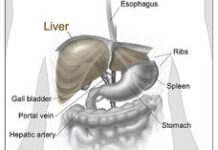
Ashley Martinez, DNP, APRN, FNP-BC, AOCNP, CPHQ, NEA-BC, is a director of advanced practice at MD Anderson Cancer Center. She also practices as a nurse practitioner in the Department of Breast Medical Oncology. As a subspecialty of her practice, she sees patients who are pregnant during their breast cancer diagnosis and treatment.
Breast cancer during pregnancy, while rare, accounts for up to 21% of cancers diagnosed during pregnancy. In recent decades, people have decided to have children later in life, which, when coupled with the fact that breast cancer risk increases with age, could mean we might begin to see more cases of breast cancer during pregnancy.
Pregnant people with breast cancer have unique needs that should not be ignored. If you are diagnosed with breast cancer during pregnancy, it is important that you bring up any questions and concerns you have with your health care team throughout your care and treatment. Your care should be managed by a multidisciplinary team that will be focused on the health of both you and your baby.
Here, learn more about some of the challenges that people diagnosed with breast cancer while pregnant might face and ways to get support.
Losing a sense of autonomy during breast cancer and pregnancy
Facing a cancer diagnosis can be extremely nerve-racking, and the emotions you might experience after being diagnosed may alter your decision-making process during cancer and its treatment. But achieving autonomy, which is the ability to make your own decisions, is critical during cancer.
Maintaining a sense of autonomy can feel especially challenging when you are faced with a diagnosis of breast cancer during pregnancy. During pregnancy, autonomy can include making decisions that will impact both you and your baby. These decisions can include birthing plans, treatment timing, and treatment options, among others. Autonomy may look different for different people with cancer, as you may make different decisions from another pregnant person with cancer, and your health care provider cannot define what autonomy means for you. Instead, they will make sure that you have sufficient information to make any important decisions along the way. How and when you plan to make decisions during cancer and pregnancy for you and your baby must be something that comes from you as the patient with support from your health care team.
Discussing your diagnosis and treatment options with your health care provider is extremely important, including how specific treatment recommendations could impact you or your baby. While these conversations can be sensitive, they are absolutely necessary in order to achieve mutual understanding before cancer treatment begins. It is important to have these conversations with not only your cancer care team but also with your obstetrical care team and your family. Some questions you may want to ask your health care team include:
-
What does this diagnosis mean for me and my baby?
-
What are my options for a birthing plan?
-
What are my potential treatment options?
-
How could each treatment option impact my baby?
-
How could treatment timing affect me and my baby?
-
What resources are available to help me during cancer and pregnancy?
Managing emotional challenges during breast cancer and pregnancy
Emotions such as anxiety and fear may be common for people facing pregnancy and breast cancer. Shock, panic, or grief, and their overall reaction to their cancer diagnosis. They can also impact the support that the person depends on for day-to-day actions and decisions, which can make daily living more challenging.
Managing these emotional challenges during cancer and pregnancy is critical. To adequately manage your emotions, you must first be willing to explore the emotions that you are experiencing. This can be done by asking yourself questions such as:
-
What are my current feelings about my diagnosis?
-
Who can I talk to about my current feelings?
-
What are the ways that I can cope with and manage my feelings?
Then, it is important that you receive the support you need in coping with your emotions and feelings. In addition to your health care team, there are multiple avenues for getting support with managing emotions during cancer and pregnancy, including:
-
Family support. Research has shown that support from family and friends can help people who are experiencing distress, including stress related to a cancer diagnosis during pregnancy. People impacted by pregnancy and breast cancer can talk with their family and friends about how they would best feel supported during this challenging time of their lives. Additionally, family and friends may be available to help support their loved one’s spouse and any children who are also affected by the cancer diagnosis.
-
Support groups. Seeking support groups with people who have had similar experiences can be helpful in coping with cancer during pregnancy. There are various types of support groups that may be available to you, including face-to-face groups, one-to-one partnerships, telephone or online interventions, and professionally led or peer-led groups. Specific support groups can often be found by reaching out to a licensed social worker at your treatment center or asking your health care team for a recommendation. This type of support may be offered in your local community, including at your treatment center. You can also use the internet as a source for connecting with people online who are going through similar experiences.
If you need additional support during cancer and pregnancy, professional counseling may be an option for you. Your health care team will continue to assess your emotions during your regular appointments and will discuss with you what can be done to help, including connecting you with a mental health professional if needed.
Managing cancer during postpartum and beyond
After experiencing cancer during pregnancy, your emotional needs should continue to be supported, especially in the postpartum period. During this period, people are often dealing with the immense physical and emotional changes that come from parenthood. Now, they must also balance caring for their newborn with managing their own health during cancer care. It is important that your emotional care and support continue even after the child is born. Be sure to talk with your health care team if you are facing new or worsened emotional challenges in the postpartum period and ask about what resources may be available to help.
Many people view pregnancy as a special and happy time in their life. However, when coupled with a breast cancer diagnosis, it can be overwhelmed with uncertainty. People with breast cancer during pregnancy should seek out professional support and should feel empowered to ask for support from their family, friends, and care teams throughout their cancer experience.
The author has no relevant relationships to disclose.







